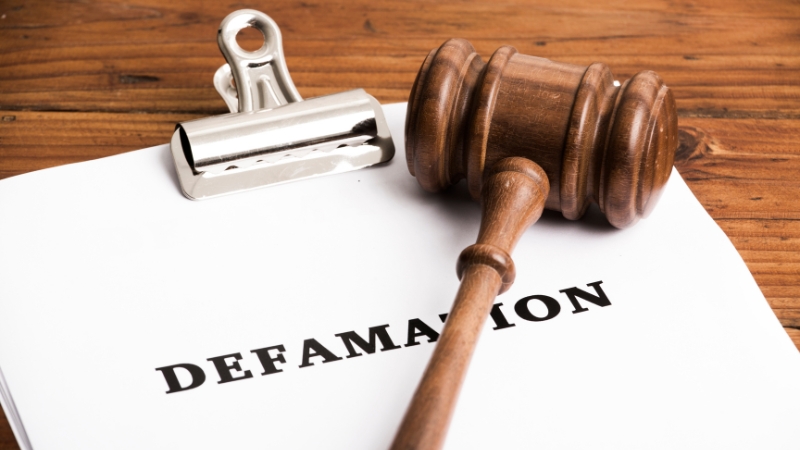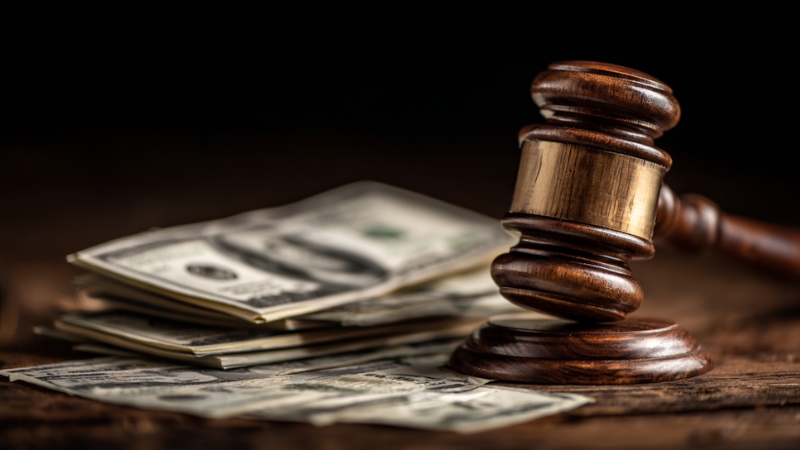Defamation, whether spoken (slander) or written (libel), can ruin reputations, damage careers, and cost individuals or businesses significant financial loss. In the United States, defamation lawsuits are not just about clearing a name; they often involve substantial monetary damages. But how much is a defamation lawsuit actually worth?
The answer varies widely. Some cases settle for a few thousand dollars, while others result in multi-million-dollar verdicts.
According to the Media Law Resource Center, the average jury award in defamation cases between 2010–2020 ranged from $300,000 to over $1 million, though appellate courts often reduce excessive awards. High-profile cases, like celebrity disputes or media lawsuits, can run into tens of millions.
This article breaks down how damages are calculated, what types of compensation are available, and what real-world examples show about the potential value of a defamation lawsuit.
How Damages Are Calculated in Defamation Cases

Damages in a defamation lawsuit generally fall into three categories: compensatory, punitive, and nominal.
Courts look at both economic losses (like lost wages or contracts) and non-economic harm (like damage to reputation, emotional distress).
| Type of Damage | What It Covers | Example |
| Compensatory Damages | Financial losses and reputational harm | A business is losing clients after false allegations |
| Punitive Damages | Additional money meant to punish the defendant for malicious or reckless behavior | A journalist knowingly publishes fabricated stories |
| Nominal Damages | Small awards acknowledging wrongdoing when actual losses aren’t proven | Symbolic $1 award in some free-speech-related cases |
Factors that influence damage amounts include:
- Severity of the false statement (accusations of criminal acts vs. minor insults).
- Public reach (private rumor vs. national media broadcast).
- Proof of actual harm (lost income, clients, contracts, opportunities).
- Defendant’s intent (negligence vs. malice).
Average Settlement and Verdict Amounts
Defamation suits rarely reach trial; most are resolved in settlements. Settlement amounts are usually confidential, but industry estimates suggest that typical settlements range from $15,000 to $500,000, depending on the severity of damages and the financial resources of the defendant.
When cases go to trial, verdicts can be much higher:
| Case | Year | Award |
| Terry Bollea (Hulk Hogan) v. Gawker | 2016 | $140 million (later settled for $31 million) |
| Cardi B v. Tasha K | 2022 | $4 million for defamation and emotional distress |
| Johnny Depp v. Amber Heard | 2022 | Depp awarded $10.35 million (later settled for $1 million) |
| Jesse Ventura v. Chris Kyle’s Estate | 2014 | $1.8 million (later overturned on appeal) |
These examples show that while headline cases involve staggering sums, the majority of claims are far more modest, especially when individuals sue local businesses, co-workers, or small media outlets.
Economic vs. Non-Economic Damages
Defamation often causes harm beyond direct financial loss. Courts distinguish between economic damages (calculable losses) and non-economic damages (harder to measure but equally important).
In legal terms, defamation may also be categorized as a compoundable or non-compoundable offence, depending on jurisdiction and the severity of harm caused.
- Economic damages may include:
- Lost job offers or contracts.
- Decline in business revenue.
- Professional opportunities lost due to reputational harm.
- Non-economic damages may include:
- Emotional distress and humiliation.
- Social stigma or loss of standing in the community.
- Long-term reputational harm that affects future earnings.
For example, a false accusation of fraud against a lawyer could not only cost them clients immediately (economic damages) but also stain their professional reputation for years (non-economic damages).
The Role of Public Figures in Damage Awards
View this post on Instagram
Public figures, politicians, celebrities, and business leaders face higher hurdles in defamation cases due to the “actual malice” standard set by the Supreme Court in New York Times v. Sullivan (1964). They must prove that false statements were made knowingly or with reckless disregard for the truth.
This higher bar means lawsuits for public figures are more complex, but when successful, awards can be much larger because the reputational damage is magnified.
For private individuals, the burden of proof is lower (often just negligence), making it easier to win damages, though awards may be smaller since the reputational harm is less widespread.
Punitive Damages: Rare but Powerful
Punitive damages are not automatic in defamation cases, but when awarded, they can be enormous. Courts typically reserve them for cases where the defendant’s actions were deliberate, malicious, or egregiously reckless.
For example:
- In Hulk Hogan’s case against Gawker, punitive damages alone made up $25 million of the award.
- In Cardi B’s lawsuit against blogger Tasha K, punitive damages were included because the blogger continued to spread false claims even after being warned.
Punitive damages send a message: spreading lies within the tent to harm can carry financial consequences far beyond compensating the victim.
How Long Do Defamation Cases Take?

Factors include:
- Pre-trial motions (whether the case even qualifies as defamation).
- Discovery (gathering evidence like emails, recordings, and financial records).
- Settlement negotiations (many cases resolve here).
- Trial and appeals (if settlement fails).
On average, defamation cases that go to trial take 1–3 years to reach resolution. High-profile cases often take longer due to appeals and media scrutiny.
Costs of Filing vs. Potential Awards
Filing a defamation suit is not cheap. Plaintiffs face attorney fees, expert witness costs, and court expenses.
In some cases, these legal costs exceed the damages awarded, which is why many individuals pursue a settlement instead of a trial.
| Expense Type | Typical Cost |
| Attorney fees | $200–$600 per hour |
| Expert witnesses (media, financial loss experts) | $5,000–$50,000 |
| Court filing and administrative costs | $500–$2,000+ |
This means that unless reputational harm is significant, many defamation cases are not financially worthwhile.
Conclusion

So, how much is a defamation lawsuit worth? The answer depends heavily on the severity of the false statement, the scope of its reach, the harm caused, and the intent of the defendant.
While average settlements may range in the tens or hundreds of thousands, high-profile cases can result in multi-million-dollar verdicts.
For individuals and businesses alike, the value of a defamation case is not just in the financial damages but in restoring reputation and accountability. While not every case will lead to a massive payout, the symbolic importance of protecting one’s name often makes pursuing legal action worthwhile.

